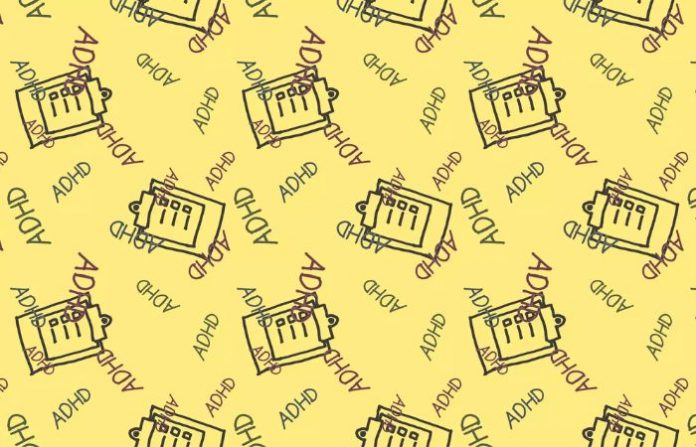Attention deficit/hyperactivity disorder (ADHD) is one of the most common neurodiversity conditions in children.1 Living with ADHD poses challenges for the person with the condition and those in their lives. According to the ADHD Institute, it’s estimated that 2.2% of children worldwide are living with the condition and will require ADHD treatment.2
Testing children for ADHD
If ADHD neurodiversity is suspected, healthcare providers like psychologists, psychiatrists, and pediatricians can make the diagnosis based on criteria of the most current American Psychiatric Association’s Diagnostics and Statistical Manual edition.3
When healthcare professionals consider whether a child has ADHD and needs ADHD treatment, they may reach out to preschool teachers, school support staff, and other adults in the child’s life to better understand how the child fits the following criteria.3
Inattentive behaviours
These can include making careless mistakes, not following instructions, not listening, feeling bored with tasks relatively quickly, and feeling distracted and forgetful.
Hyperactive and impulsive behaviours
These can include fidgeting, speaking excessively, interrupting people when they speak, impatience when waiting for their turn, and difficulty staying seated.
The above behaviours need to have been present before the age of 12 and symptoms can differ for each child. When testing for ADHD, healthcare professionals look for at least six of both inattentive behaviours and hyperactive/impulsive behaviours before diagnosing ADHD.3 Additionally, mental health and neurodiverse conditions like anxiety disorder and autism need to be ruled out.3
Children’s ADHD treatment options
It’s important to note that the following treatments do not cure ADHD, but can alleviate symptoms. Some treatment options include:
- behavioural therapy,
- counseling,
- and oral medication.4
ADHD medication
Prescribing methylphenidate and its derivatives serdexmethylphenidate/dexmethylphenidate for ADHD in patients with neurodiversity at six years and older has been common practice for over a century.5 The drug’s typical use is due to its lack of serious adverse events and effectiveness in reducing ADHD symptoms.5 A benefit to using methylphenidate is relatively low adverse effects, with the most common being
- insomnia,
- irritability,
- headache,
- abdominal pain,
- and decreased appetite.5
Previous dosing of twice or three times daily has come under scrutiny, and current research investigated the use of once-daily dosing.5,6
Is once-daily ADHD medication effective?
Between 2018 and 2019, researchers examined once-daily dosing of serdexmethylphenidate/dexmethylphenidate in children ages 6 to 12 with ADHD.5 Participant exclusion criteria included a prior diagnosis of autism spectrum disorder or other neurodiverse diagnoses, mental health conditions, and pathological behavioural issues.
Of the 238 children who began ADHD treatment, 155 completed the entire duration. There were no life-threatening or fatal adverse events. ADHD symptoms were reduced and the most common side effects were:
- decreased appetite (18.5%),
- upper respiratory infection (9.7%),
- inflammation of the pharynx/nasal cavity (8.0%),
- weight loss (7.6%),
- and irritability (6.7%).5
What’s next for ADHD research?
Researchers concluded that the medication is safe and effective as an ADHD treatment for children. This means that the previous dosing should be evaluated. It would be interesting to see the effectiveness of this medication as a once-daily dose with a larger treatment group and for more than one year. Speak with your doctor if you would like to know if this medication is right for your child.
References
- What is ADHD? Centers for Disease Control and Prevention. Published August 9, 2022. https://www.cdc.gov/ncbddd/adhd/facts.html#:~:text=ADHD%20is%20one%20of%20the,)%2C%20or%20be%20overly%20active.
- ADHD epidemiology. ADHD Institute. Published January 18, 2022. Accessed March 14, 2023. https://adhd-institute.com/burden-of-adhd/epidemiology/
- Symptoms and diagnosis of ADHD. Centers for Disease Control and Prevention. Published August 9, 2022. Accessed March 14, 2023. https://www.cdc.gov/ncbddd/adhd/diagnosis.html.
- Attention-deficit/hyperactivity disorder (ADHD) in children. Mayo Clinic. Published June 25, 2019. Accessed March 14, 2023. https://www.mayoclinic.org/diseases-conditions/adhd/diagnosis-treatment/drc-20350895.
- Childress AC, Marraffino A, Cutler AJ, Oh C, and Brams MN. Safety and tolerability of serdexmethylphenidate/dexmethylphenidate capsules in children with attention-deficit/hyperactivity disorder: A 12-month, open-label safety study. Journal of Child and Adolescent Psychopharmacology. 2023. https://www.liebertpub.com/doi/10.1089/cap.2022.0076
- Stein MA, Blondis TA, Schnitzler ER, et al. Methylphenidate dosing: Twice daily versus three times daily. Pediatrics. 1996;98(4 Pt 1):748-756. https://pubmed.ncbi.nlm.nih.gov/8885956/



